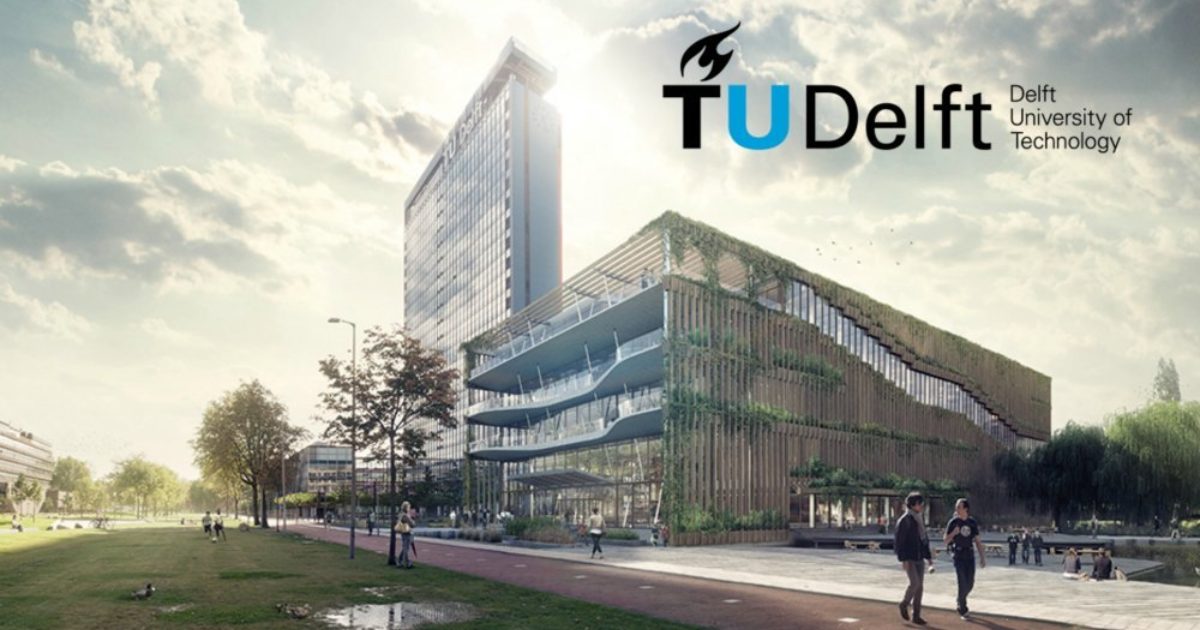TU Delft: TU Delft students impress in competition with sustainable solution for tenement flats
Symbiotic Urban Movement (SUM) is the name of the TU Delft student team that won third prize at the Solar Decathlon Europe 21/22 on Friday 24 June. Their solution: an innovative plan to transform all of the Netherlands’ 847,000 tenement flats.
Many of these outdated flats are marked for demolition because of their excessive energy use. These distinctly Dutch flats can, however, be preserved by adding what SUM calls ‘an energy-positive topping’. This module adds two additional layers of housing, but it also makes the entire flat energy neutral. This breakthrough design by SUM is an important contribution to the ongoing challenge to build a million residences over the next ten years. It certainly impressed the jury.
Solar Decathlon Europe competition (SDE)
At the Solar Decathlon Europe competition, sixteen international student teams presented their innovative solutions for sustainable and energy efficient architecture and engineering for the construction sector. This competition challenges universities from all over the world to design, build and monitor self-sustainable housing. The houses are equipped with advanced technologies and designed in compliance with the highest sustainability standards. The teams were tasked to build a prototype of their solution, within two weeks’ time. The designs were then scored according to ten criteria, each focussing on a specific aspect of sustainable construction and city life. SUM won the third prize, together with team AURA. “We couldn’t be prouder with our first prize,” says Daniel Simon of SUM. “The Solar Decathlon Europe competition is the perfect stage to challenge the construction industry into assuming a new perspective regarding how new houses are built and how existing houses are repurposed.”
Sustainable solutions for an outdated housing stock
In 2019, a team of more than 50 TU Delft students took up the challenge to devise a solution for the outdated housing stock of the Netherlands, especially focussing on circularity and energy efficiency. Their solution – consisting of a social plinth, tenements, and a circulation core – constitutes a transformation of the distinctly Dutch tenement flats. New modules, placed on top of the flat, serve as a battery, providing the old building with solar energy and rainwater. Next to this ‘up-topping’, SUM also renovates the pre-existing parts of the flat. Improving social cohesion is the final pillar of their plan, which they achieve by revamping the ground floor into a common public space consisting of a cafe, shops, a restaurant, and community workshops.
It is a prime objective of the Dutch government to add one million houses, two-thirds of which must be ‘affordable’. Hugo de Jonge, minister of Housing, Spatial Planning and the Environment, has already indicated that the goal of building 100,000 new houses this year will not be achieved. On top of that, most new houses are built outside of city limits whereas demand is highest in the inner cities. “We offer the minister a concrete and implementation-ready plan to quickly increase affordable housing,” says SUM communications officer Nikki De Zeeuw. The ambition of SUM is to provide a solution for renovating all tenement flats within the Netherlands. This way, it will take only a few years to substantially reduce the housing shortage while also making outdated tenement flats energy neutral.
Integrating theory and practice into a successful project
The prototype was first built in the Netherlands by a team of 64 students from TU Delft. It was subsequently disassembled and then rebuilt during the competition that took place in Wuppertal. “The project was a collaboration of more than 70 partners,” says SUM partnership coordinator Goossens. “In the final three years of the project, we managed to merge the knowledge and insights from TU Delft with the practical experience of our partners, building a successful project. SUM is greatly indebted to all its partners, including premier sponsors Daiwa House Modulator Europe, the municipality of The Hague, Smits Vastgoedzorg, and De Groot & Visser.
Hans Bruchez, superintendent at Smits Vastgoedzorg: “Mentoring young and ambitious students for this challenge has been a fabulous experience. It is great to see how our experience matches their knowledge in the field of modularity, circularity, and sustainability.”
Daan Kosterman, project leader Circularity at Daiwa House Modular Europe: “We are proud to have supported this very talented team in developing and building a fully passive top-up house that will change the Netherlands for the better. It has been a great opportunity for Daiwa House Modular Europe to share our knowledge and to develop and support new ideas for sustainable construction.”

